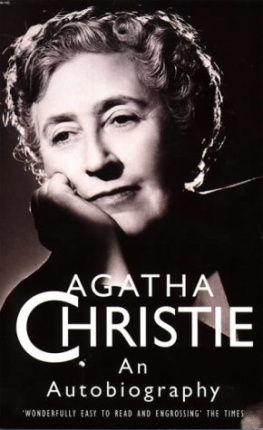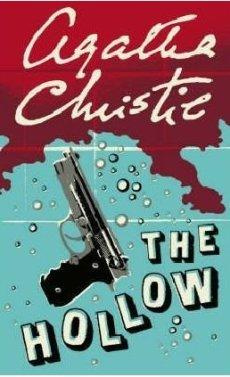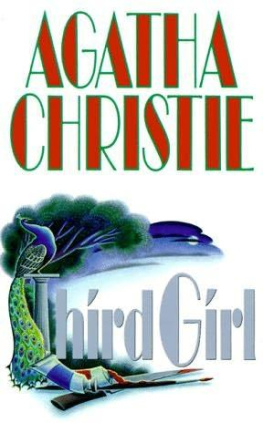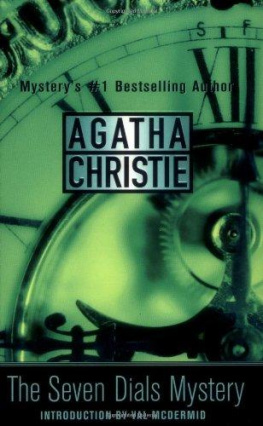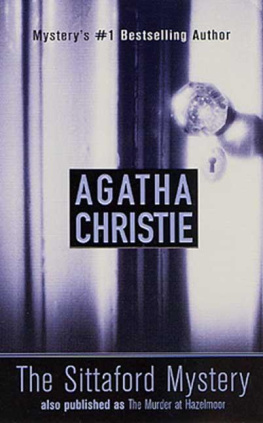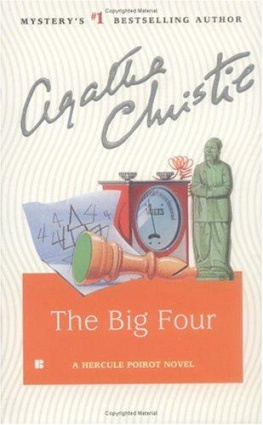Agatha Christie - Third Girl
Here you can read online Agatha Christie - Third Girl full text of the book (entire story) in english for free. Download pdf and epub, get meaning, cover and reviews about this ebook. year: 2000, publisher: Berkley, genre: Detective and thriller. Description of the work, (preface) as well as reviews are available. Best literature library LitArk.com created for fans of good reading and offers a wide selection of genres:
Romance novel
Science fiction
Adventure
Detective
Science
History
Home and family
Prose
Art
Politics
Computer
Non-fiction
Religion
Business
Children
Humor
Choose a favorite category and find really read worthwhile books. Enjoy immersion in the world of imagination, feel the emotions of the characters or learn something new for yourself, make an fascinating discovery.
- Book:Third Girl
- Author:
- Publisher:Berkley
- Genre:
- Year:2000
- ISBN:-13978-0425174715
- Rating:4 / 5
- Favourites:Add to favourites
- Your mark:
- 80
- 1
- 2
- 3
- 4
- 5
Third Girl: summary, description and annotation
We offer to read an annotation, description, summary or preface (depends on what the author of the book "Third Girl" wrote himself). If you haven't found the necessary information about the book — write in the comments, we will try to find it.
Third Girl — read online for free the complete book (whole text) full work
Below is the text of the book, divided by pages. System saving the place of the last page read, allows you to conveniently read the book "Third Girl" online for free, without having to search again every time where you left off. Put a bookmark, and you can go to the page where you finished reading at any time.
Font size:
Interval:
Bookmark:
Agatha Christie
Third Girl
Chapter One
HERCULE POIROT was sitting at the breakfast table. At his right hand was a steaming cup of chocolate.
He had always had a sweet tooth.
To accompany the chocolate was a brioche. It went agreeably with chocolate.
He nodded his approval. This was from the fourth shop he had tried. It was a Danish patisserie but infinitely superior to the so-called French one near by. That had been nothing less than a fraud.
He was satisfied gastronomically. His stomach was at peace. His mind also was at peace, perhaps somewhat too much so.
He had finished his Magnum Opus, an analysis of great writers of detective fiction. He had dared to speak scathingly of Edgar Alien Poe, he had complained of the lack of method or order in the romantic outpourings of Wilkie Collins, had lauded to the skies two American authors who were practically unknown, and had in various other ways given honour where honour was due and sternly withheld it where he considered it was not. He had seen the volume through the press, had looked upon the results and, apart from a really incredible number of printer's errors, pronounced that it was good. He had enjoyed this literary achievement and enjoyed the vast amount of reading he had had to do, had enjoyed snorting with disgust as he flung a book across the floor (though always remembering to rise, pick it up and dispose of it tidily in the waste-paper basket) and had enjoyed appreciatively nodding his head on the rare occasions when such approval was justified.
And now? He had had a pleasant interlude of relaxation, very necessary after his intellectual labour. But one could not relax for ever, one had to go on to the next thing. Unfortunately he had no idea what the next thing might be. Some further literary accomplishment? He thought not.
Do a thing well then leave it alone. That was his maxim. The truth of the matter was, he was bored. All this strenuous mental activity in which he had been indulging-there had been too much of it. It had got him into bad habits, it had made him restless.
Vexatious! He shook his head and took another sip of chocolate.
The door opened and his well-trained servant, George, entered. His manner was deferential and slightly apologetic. He coughed and murmured, "A -" he paused," - a - young lady has called." Poirot looked at him with surprise and mild distaste.
"I do not see people at this hour," he said reprovingly.
"No, sir," agreed George.
Master and servant looked at each other.
Communication was sometimes fraught with difficulties for them. By inflexion or innuendo or a certain choice of words George would signify that there was something that might be elicited if the right question was asked. Poirot considered what the right question in this case might be.
"She is good-looking, this young lady?" he enquired carefully.
"In my view - no, sir, but there is no accounting for tastes." Poirot considered this reply. He remembered the slight pause that George had made before the phrase - young lady.
George was a delicate social recorder. He had been uncertain of the visitor's status but had given her the benefit of the doubt.
"You are of the opinion that she is a young lady rather than, let us say, a young person?" "I think so, sir, though it is not always easy to tell nowadays." George spoke with genuine regret.
"Did she give a reason for wishing to see me?" "She said - " George pronounced the words with some reluctance, apologising for them in advance as it were, "that she wanted to consult you about a murder she might have committed." Hercule Poirot stared. His eyebrows rose. "Might have committed? Does she not know?" "That is what she said, sir." "Unsatisfactory, but possibly interesting," said Poirot.
"It might-have been a joke, sir," said George, dubiously.
"Anything is possible, I suppose," conceded Poirot, "But one would hardly think - " He lifted his cup. "Show her in after five minutes." "Yes, sir." George withdrew.
Poirot finished the last sip of chocolate.
He pushed aside his cup and rose to his feet. He walked to the fireplace and adjusted his moustaches carefully in the mirror over the chimney piece. Satisfied, he returned to his chair and awaited the arrival of his visitor. He did not know exactly what to expect.
He had hoped perhaps for something nearer to his own estimate of female attraction. The outworn phrase "beauty in distress" had occurred to him. He was disappointed when George returned ushering in the visitor; inwardly he shook his head and sighed. Here was no beauty - and no noticeable distress either. Mild perplexity would seem nearer the mark.
"Pah!" thought Poirot disgustedly. "These girls' Do they not even try to make something of themselves? Well made up, attractively dressed, hair that has been arranged by a good hairdresser, then perhaps she might pass. But now!" His visitor was a girl of perhaps twentyodd.
Long straggly hair of indeterminate colour strayed over her shoulders. Her eyes, which were large, bore a vacant expression and were of a greenish blue.
She wore what were presumably the chosen clothes of her generation. Black high leather boots, white openwork woollen stockings of doubtful cleanliness, a skimpy skirt, and a long and sloppy pullover of heavy wool. Anyone of Poirot's age and generation would have had only one desire. To drop the girl into a bath as soon as possible. He had often felt this same reaction walking along the streets.
There were hundreds of girls looking exactly the same. They all looked dirty.
And yet - a contradiction in terms - this one had the look of having been recently drowned and pulled out of a river. Such girls, he reflected, were not perhaps really dirty. They merely took enormous care and pains to look so.
He rose with his usual politeness, shook hands, drew out a chair.
"You demanded to see me, mademoiselle? Sit down, I pray of you."
"Oh," said the girl, in a slightly breathless voice. She stared at him.
"Eh bien?" said Poirot.
She hesitated. "I think I'd-rather stand." The large eyes continued to stare doubtfully.
"As you please." Poirot resumed his seat and looked at her. He waited. The girl shuffled her feet. She looked down on them then up again at Poirot.
"You - you are Hercule Poirot?"
"Assuredly. In what way can I be of use to you?"
"Oh, well, it's rather difficult. I mean - "
Poirot felt that she might need perhaps a little assistance. He said helpfully, "My manservant told me that you wanted to consult me because you thought you 'might have committed a murder'. Is that correct?"
The girl nodded. "That's right."
"Surely that is not a matter that admits of any doubt. You must know yourself whether you have committed a murder or not."
"Well, I don't know quite how to put it. I mean - "
"Come now," said Poirot kindly. "Sit down. Relax the muscles. Tell me all about it."
"I don't think - oh dear, I don't know how to - You see, it's all so difficult. I've - I've changed my mind. I don't want to be rude but - well, I think I'd better go."
"Come now. Courage."
"No, I can't. I thought I could come and - and ask you, ask you what I ought to do - but I can't, you see. It's all so different from - "
"From what?"
"I'm awfully sorry and I really don't want to be rude, but - " She breathed an enormous sigh, looked at Poirot, looked away, and suddenly blurted out, "You're too old. Nobody told me you were so old. I really don't want to be rude but - there it is. You're too old. I'm really very sorry." She turned abruptly and blundered out of the room, rather like a desperate moth in lamplight.
Poirot, his mouth open, heard the bang of the front door.
He ejaculated: "Non (fun nom cfun nom"
Font size:
Interval:
Bookmark:
Similar books «Third Girl»
Look at similar books to Third Girl. We have selected literature similar in name and meaning in the hope of providing readers with more options to find new, interesting, not yet read works.
Discussion, reviews of the book Third Girl and just readers' own opinions. Leave your comments, write what you think about the work, its meaning or the main characters. Specify what exactly you liked and what you didn't like, and why you think so.

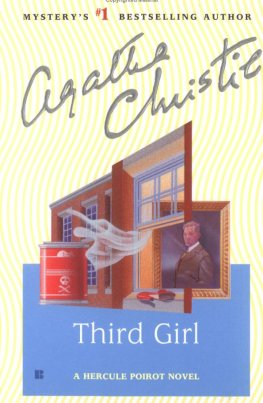
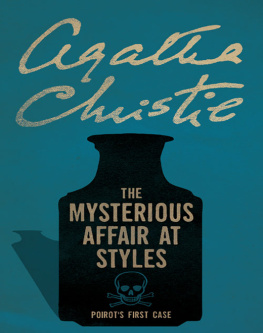
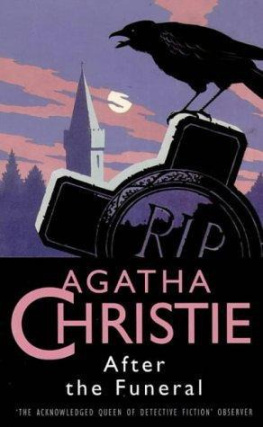
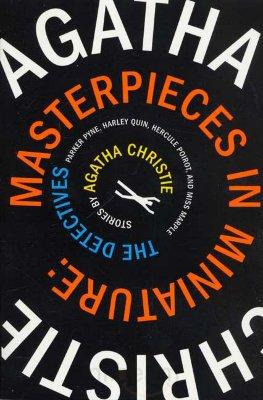
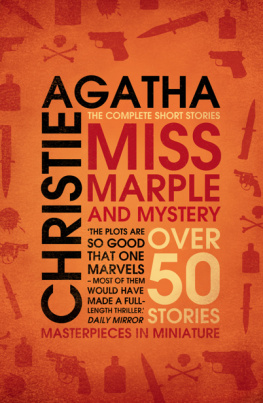
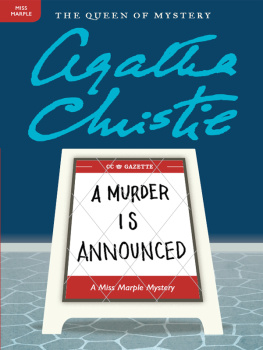
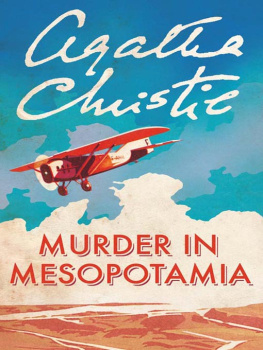


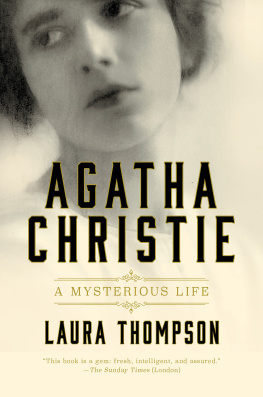

![Agatha Christie [Agatha Christie] - Problem at Pollensa Bay](/uploads/posts/book/140367/thumbs/agatha-christie-agatha-christie-problem-at.jpg)
